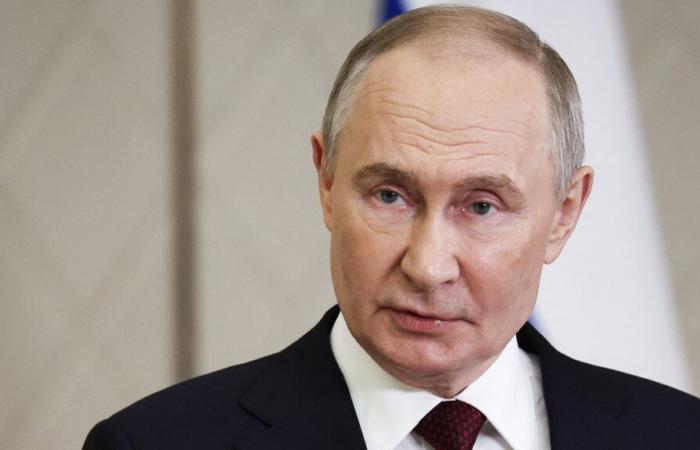It's his ” answer “ to the firing of ATACMS missiles, delivered to kyiv by Washington, against Russian territory. The day after the massive bombings which targeted Ukraine on Thursday November 27, Vladimir Putin justified the strikes and once again brandished the threat of the experimental Orechnik missile.
If it was not used during the last bombings, the production “in series” of the missile “started”assured Vladimir Putin, who once again praised the merits of the intermediate-range hypersonic weapon, i.e. a radius of 5,500 km including Europe and the west coast of the United States. “If you use several of these systems in one strike – two, three, four – then, in terms of its power, it is comparable to the use of a nuclear weapon”he said.
“We do not exclude the use of Orechnik against military targets, military-industrial installations or decision-making centers, including in kyiv”specified the master of the Kremlin, during a press conference broadcast on Russian television, on the sidelines of a visit to Kazakhstan.
A million Ukrainians in the dark
According to the Russian president, 90 missiles and 100 explosive drones were launched against Ukraine on Thursday. Their objective: the country's energy infrastructure, in order to undermine the morale of the population and handicap the logistics of the army. These bombings caused power cuts “all over the country”according to the boss of one of the Yasno electricity supply companies, Serguii Kovalenko. In total, at least one million Ukrainians are now plunged into darkness, according to various regional authorities.
Volodymyr Zelensky accused Moscow of using bombs “cluster munitions”de facto undermining these sites and endangering civilians, emergency services and maintenance teams. These weapons “considerably complicate the task of our rescuers and electrical engineers” dispatched to the scene, he lamented on social networks. The Ukrainian president once again pleaded for sending “air defense systems now”.
Donald Trump, the X factor
In recent weeks, Moscow has increased its military pressure on Ukraine, less than two months before Donald Trump's return to the White House, seen as a possible turning point. The president-elect has in fact promised to resolve the conflict even before taking the oath of office on January 20.
If Donald Trump has never explained precisely how he intends to proceed, kyiv fears being pushed to the negotiating table in an unfavorable position. On Wednesday, the Republican appointed former general Keith Kellogg, 80, who has called on kyiv for several concessions, as an emissary to end the war.






